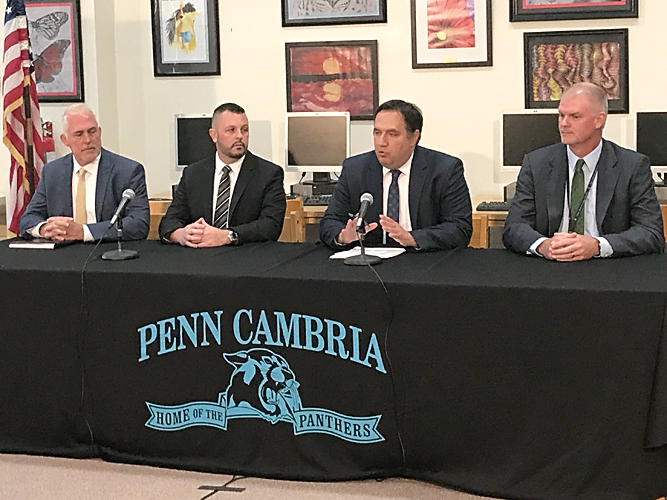Pennsylvania state representative (D-Cambria) Frank Burns is serious about confronting bullying.

As part of a bold plan to reduce harassment, intimidation and bullying incidents, he’s tapped HIBster to help school districts address the issue.
Penn Cambria School District will serve as the first district to pilot HIBster under Burns’ redoubled efforts.
“Penn Cambria School District is honored to have this opportunity to partner with Representative Burns and HIBster to monitor, track and identify acts of bullying districtwide and make our Penn Cambria community safer for all students,” Penn Cambria Superintendent William Marshall said.
Burns’ aggressive approach includes the introduction of an Anti-Bullying Bill of Rights — which will more clearly define a bullying incident — as well as possible fines and community service for the parents of bullies.
Educational Development Software’s Director of Education Jim Budzilek sat down with WJAC news to discuss HIBster’s effectiveness in New Jersey and how it will translate to Pennsylvania. (Watch the video here)
“What is started off with, New Jersey has a law that all schools have to record incidents and bullying from administration all the way up to the school board,” Budzilek said. “That’s not yet in Pennsylvania. However, we believe with the success we’ve had with HIBster in New Jersey that we need to get this tool to schools in Pennsylvania.”
Budzilek said the program allows victims or witnesses of bullying to anonymously submit a report that will work its way through the school’s administration to the superintendent. “There was one school district, they had a 50 percent drop in two years of incidents of bullying,” Budzilek said.
HIBster will make it much easier to report — even anonymously — suspected instances of bullying. And once the incident is reported, the district is able to track, monitor and act on those reports in a much more coordinated way.
Marshall spoke highly of HIBster to the Altoona Mirror.
“We have five buildings. In the past, none of that discipline information carried over from year to year and from building to building. Now for example, when all fourth-graders move to the middle school, their discipline information carries over,” he said.
Marshall foresees the reports generated by the program will help eliminate the “he-said, she-said” that makes bullying murky.
“We can really identify students who are victims and actors and hotspots where bullying happens,” he said. “The tough thing with bullying is bullies are good at hiding it. But if we have a report showing a student is accused three times in semester, that is a good indication, and the student is aware that we are aware of it.”
